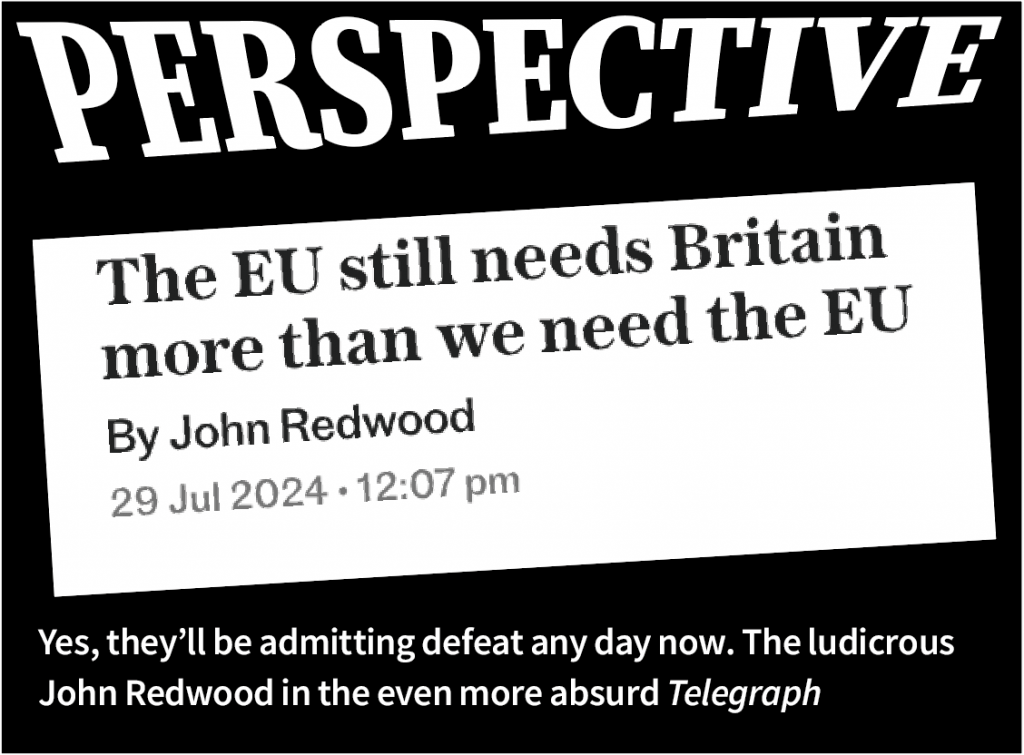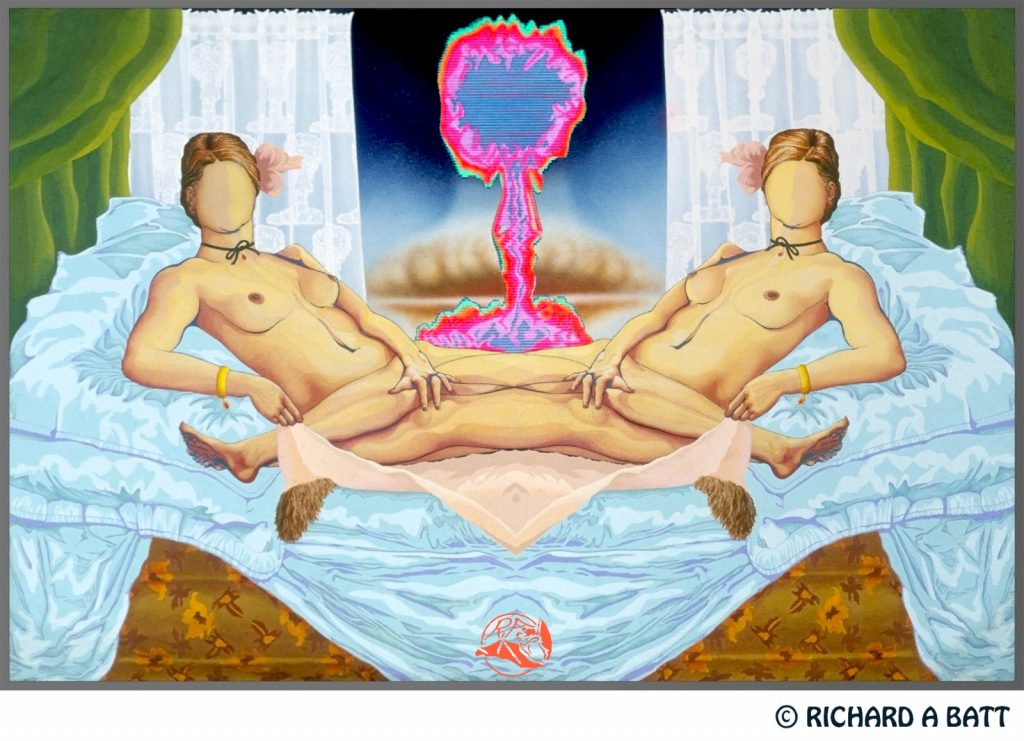“A long race to the bottom” by Marie Le Conte (TNE #399) seems to have been written before the events in Southport, which some have used as an excuse for riot, arson and looting. The response of the main contenders for the Conservative leadership to the disorder on our streets validates Le Conte’s conclusions.
We have seen Kemi Badenoch deciding this was the right time to declare that integration of migrant communities has failed, James Cleverly implying that Keir Starmer’s taking of the knee in some way inspired the thugs, Robert Jenrick appearing on GB News to call for an end to “mass migration” in the national interest, and Priti Patel and Tom Tugendhat indulging in pathetic point-scoring over the government’s response. Only Mel Stride has had the good sense to mostly shut up.
Where is the Theresa May figure who is going to tell this now extremely nasty party that their own rhetoric is to blame for libraries on fire, police in hospital, local shops looted and Nazi salutes in our town and city squares?
Kay Lindsay
I relished Marie Le Conte’s irreverent take on the Tory “runners and riders”. Although at this point, with the grave disorder erupting all over the country, they might be relieved that they haven’t got to deal with it as the party in government.
She is right that none inspire much enthusiasm as they have all been round the block many times, occupied different roles, and we know them inside out.
I wonder why some of them want to bother; but political ambition is a relentless master that will never allow for just walking into the sunset.
Judith A Daniels
Cobholm, Norfolk
Marie Le Conte reasons that the six contestants for the Tory leadership are unappealing because of having to pander to the majority of party members – described as “somewhere to the right of Genghis Khan”. This, she argues, will put off normal right-of-centre people from joining the party, resulting in the hardcore entrenching their position and the party becoming madder and madder as a result.
Another indication that the Tories may be in terminal decline is the choice of November 2 to announce the winner of the contest. This date is observed in South America and elsewhere as the Day of the Dead.
Roger Hinds

A very French Olympics
Dilettante on the Olympic opening ceremony (TNE #399) was a brilliant article by Marie Le Conte. I live in Montreuil, on the eastern edge of Paris, and I agree: it was extravagant, shocking, moving, hilarious, sometimes overblown, but ultimately extremely successful (as a weird work of weird art) and beautifully French.
Thomas Landon
I don’t think Marie Le Conte has grasped why some people hated the opening ceremony. No one I know cared that everyone wasn’t thin or elegant (though plenty were) or that it was weird. The issue was that it wasn’t weird enough!
It was lacklustre, boring and kept relying on non-French celebs. Why Lady Gaga? Why a John Lennon song? Be more French and weird I say!
The runway with lots of drag queens prancing about for hours was passé – it wasn’t the “bad taste” that bothered us – we’re not prudes and we watched enough Eurotrash to understand the attraction of weird and crude!
If anything, I thought it was terribly old-fashioned. As if it got stuck in the 1990s.
Brian Russell
The opening ceremony was good, in parts. Paris came across as the great world city it is. Some humour may have been lost on me, but I liked the Minions flushing the (Italian) Mona Lisa down the Seine. Rafael Nadal was generously given citoyen status.
John Lennon’s Imagine, with its “Imagine there’s no countries” was important to the ceremony. Ideally, the Olympics show us at our sporting best. National anthems and flag-waving should play no part. This time, thankfully, they don’t for Russia.
Gold medal winners should be celebrated for the greatness of their achievement regardless of nationality. Athletes who compete for sport alone and without national backing, as Olympic refugee competitors do, deserve extra credit.
Roland Lazarus
Billericay, Essex
Lording it
Re: “A cull in the Lords” (TNE #399) by Patience Wheatcroft. I had an opportunity to attend a Lords debate on July 24, and as on previous occasions was struck by the great difference between the Lords and Commons debate.
The latter is, like prime minister’s questions, a bit of a circus, and entertaining perhaps for the wrong reasons. The Lords debates are more politely conducted and the contributors often make valuable points.
Two well-known speakers at the debate I attended were the Lords Blunkett and Howard, former big beasts of the Commons. As backbenchers, they had only five minutes to speak, but both contributed knowledgeably, with authority and above all with civility. It was a debate that indicates the Lords can exercise its role as a revising chamber and hopefully will continue to do so whatever its future role.
Donald McCubbin
Perhaps term limits could be flexible, able to be extended based on some measure of consistent constructive participation in the life of the House?
Andrew Teal
Alas, contrary to what Patience Wheatcroft says, we were unable to eject Bill Cash as he did not stand for the revised Stone constituency at the July election. Instead, we got saddled with Gavin Williamson.
Christopher Evans
Trump on toast
Re: “Kamala has got Trump rattled” (TNE #399). Recent polling seems to show that it is no longer a toss-up, as Matthew d’Ancona says. Trump is toast. There are too many decent Republicans who won’t vote for him.
John Glaspool
Damaging experience
“The £112bn wasters” by Jonty Bloom was a great piece. One point though: they didn’t fire 20,000 police officers – you can’t make cops redundant.
What they did was take 600,000 years of police experience (veteran police who chose to retire early or resign altogether) and flush it away, replacing them with new recruits with zero experience.
This is the true cost of austerity. The loss of organisational knowledge. Not just the police, but all the public sector, all the volunteer sector, too. So many projects that were delivering for communities were shut down and the hard-earned years of experience lost for ever. They cannot simply be restarted. The effects will be with us for years to come.
Paul Ditta
Historical fiction
Re: Em Jackson’s low opinion of Oliver Stone’s JFK (Letters, TNE #399). I would respectfully suggest its historical accuracy is not what really matters.
In 1992, Norman Mailer, defending the film against “the Washington establishment”, argued that “at times, bullshit can only be countered with superior bullshit”. The late doyen of US film critics Roger Ebert was also an admirer. In 2002, he wrote: “I have no opinion of the factual accuracy of JFK. I don’t think that’s the point. This is not a film about the facts of the assassination, but about the feelings.”
More recently – 2021 – Daniel Arkin of CBS News argued that the film still resonated “not as a literal account of events but as a collage of issues that still tug at the national fabric, justifiably or not: distrust of government, scepticism of institutions, conspiracy theories, rabbit holes”.
Will Goble
Rayleigh, Essex
Manet laundering
What drew me to “A plague on plagiarism” by Simon Barnes (TNE #399) was the image of Manet’s Olympia – a painting I had studied, and, to a degree, copied (full size).
The full title of my painting is Olympia: She’ll be your living end to death of a ladies’ man.
Simon Barnes might have said that I carried out triple plagiarism: firstly of Manet’s painting, and then in the title lyrics from David Bowie and Leonard Cohen.
I’ll leave it up to the readers to decide if my image has enhanced the original.
Richard A Batt
Preston, Lancashire

Daley abuse
Daley Thompson may have been a great decathlete (Matthew d’Ancona’s Culture, TNE #398) but at the height of his prowess he was personally, directly and publicly pretty offensive to Carl Lewis.
Mark Crompton
London, E14
Spoiled alert
There are many possible reasons why people didn’t vote on July 4, and without a survey it is not safe to say, as Christopher Molloy (Letters, TNE #398) suggests, that they were all tacitly accepting the result.
In the seats Labour gained, there was an average turnout of 60.5%, and the Labour share of the vote, on average, rose by 6.3%, whereas in seats Labour held, turnout averaged 54.5%, and the Labour share fell by 6.2%. This difference may reflect tactical voting, a Labour strategy of focusing on seats it aimed to gain, or other reasons. The need for photo ID will have deterred some voters, and the fact that the overall result was seen as a foregone conclusion may have led to both Labour supporters and its opponents not bothering to vote.
There were 116,063 votes that were counted as “spoiled”. How many of these reflected voters’ errors, and how many made a tacit decision not to accept the election result, it is impossible to say.
Alan Slomson
Leeds, West Yorkshire
Taking its toll
Peter Trudgill’s column (TNE #398) on tolls, customs and divans was very interesting. However, what about the origin of the French word péage, which many of us encounter when paying tolls on French roads today?
Jagdev Panesar

BELOW THE LINE
Comments, conversation and correspondence from our online subscribers
“Belgium’s Babylonian mess” (Carousel, TNE #399), on the difficulty of knowing which language to speak, was an excellent article. I have the same problem in Mallorca. Castellano? Mallorquín? English? It’s actually quite fun.
Isabel Picornell
We live in Namur in Wallonia (Namen in Flemish) and completely agree with this article. Belgium is a country that shouldn’t work, but somehow does, and does very well at it. We love living here but it is complicated!
Damien Maguire
I found Luxembourg at least as challenging, as German is also in the mix and some mishmash language that has some of all the languages spoken in it…
Maryke Gosling
Re: Josh Barrie on crêpes (TNE #399). Buckwheat galettes are my best discovery from an 18-month Paris residency. A savoury cheese and ham with a jug of cider followed by a sweet crepe with homemade marzipan and ice cream, shared with my wife. Simple delights!
John Slater
Re: Everyday philosophy on chatbots (TNE #399). The massive difference between chatbots and humans is the physicality of the human. As is noted, replacing bits of the brain with silicon chips is an astonishingly simplistic claim, but even beyond that leap is the disregard of the physical and its intimate connection to our brains, evolved through evolution and thus designed to cope with the physical as a matter of prime importance.
Paul Madge
JOIN THE CONVERSATION
Subscribe and download our free new app to comment and chat with our writers



